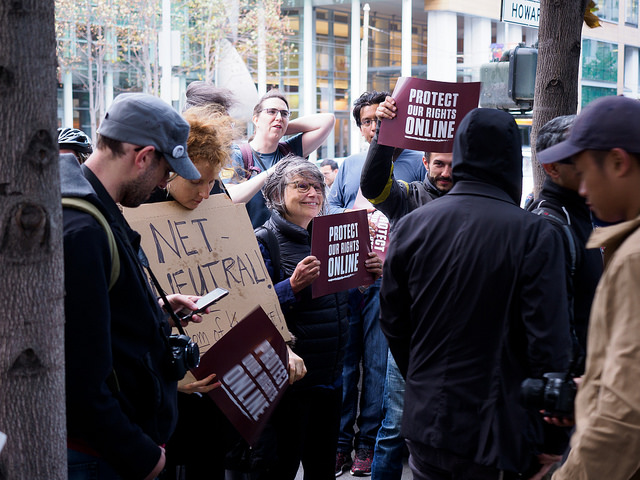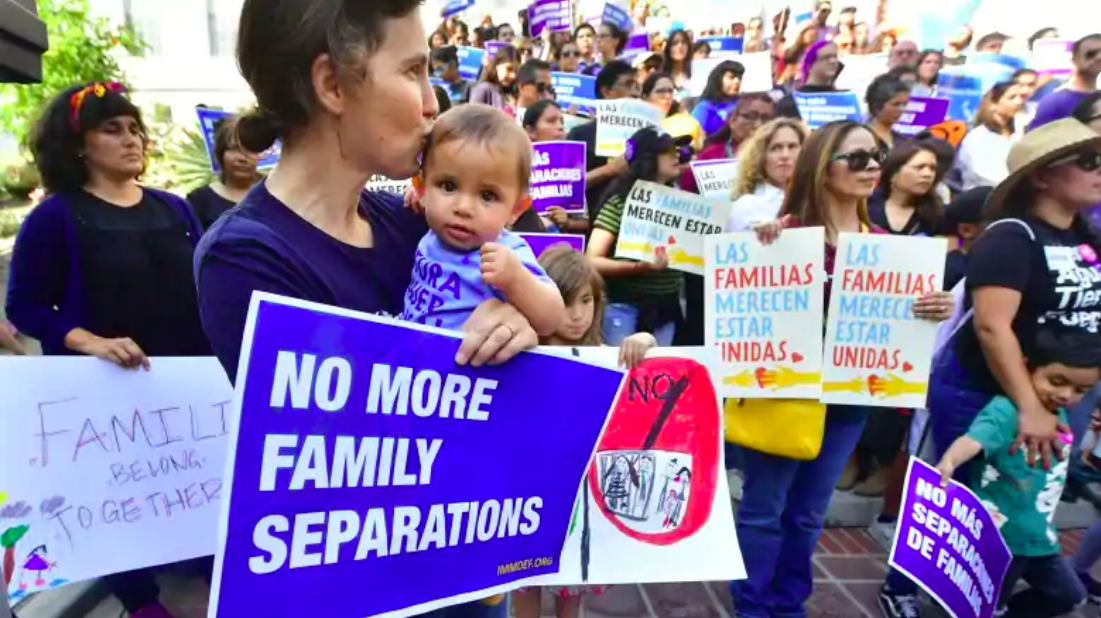U.S. regulators voted Thursday to roll back so-called “net neutrality” rules which required internet providers to treat all traffic equally, in the latest twist in an acrimonious debate over online freedom.
The Federal Communications Commission, in a three-to-two vote, adopted a proposal by Republican appointed chairman Ajit Pai, who said his plan would scrap “heavy-handed” rules adopted in 2015 which he argued discourage investment and innovation.
The vote capped a heated partisan debate and is just the latest in a battle over more than a decade on rules governing internet service providers in the courts and the FCC.
Democratic member Mignon Clyburn, one of the two dissenters, charged that the agency was “handing the keys to the internet” to “a handful of multibillion dollar corporations.”
CNN headline declares net neutrality repeal "end of the Internet as we know it" https://t.co/dFry9wvVS9 pic.twitter.com/DuUOZ9YEN2
— The Hill (@thehill) December 14, 2017
Immediately following the vote, officials from two states and others vowed to challenge the FCC action in court.
Net neutrality activists have staged a series of protests in cities around the US and online, amid fears that dominant broadband providers could change how the internet works by favoring their own services and hindering those of rivals, and charging more for certain kinds of access.
Net neutrality backers have argued rules are needed to prevent internet service providers from blocking or throttling services or websites for competitive reasons.
Critics of the 2015 rule counter that it was based on utility-style regulation designed for 1930s telephone companies, not a dynamic internet market.
Mr. Pai said ahead of the vote that his plan would restore “light-touch” rules which allowed the internet to flourish, and promote investments to enable new and emerging services.
“The digital world bears no resemblance to a water pipe or electric line or sewer,” Mr. Pai said.
“Entrepreneurs and innovators guided the internet far better than the heavy hand of government.”
But dissenting FCC commissioner Jessica Rosenworcel said the rollback will hurt consumers and others.
“Net neutrality is internet freedom. I support that freedom,” she said.
“This decision puts the Federal Communications Commission on the wrong side of history, the wrong side of the law, and the wrong side of the American public.”
Appointed by President Donald J. Trump, Mr. Pai was a fierce critic of the neutrality rules adopted under former President Barack Obama in 2015 and earlier this month unveiled his plan named the “Restoring Internet Freedom” order.
Many Republican lawmakers backed Mr. Pai, although a few had urged the FCC to delay the vote to allow Congress time to consider legislation.
Within minutes of the vote, the attorneys general of New York State and Washington State vowed to challenge the FCC in court.
“The FCC just gave Big Telecom an early Christmas present, by giving internet service providers yet another way to put corporate profits over consumers,” New York Attorney General Eric Schneiderman said.
“New Yorkers deserve the right to a free and open internet. That’s why we will sue to stop the FCC’s illegal rollback of net neutrality.”
Others planned legal challenges including the consumer activist group Free Press.
“We’ll have plenty to say in court about the legal mistakes littered throughout this decision,” said Free Press spokesman Matt Wood.
Pai and internet firms have maintained that internet users will see no difference once the new rules are implemented.
Commission member Michael O’Rielly dismissed “fearmongering” by neutrality backers.
“The internet has functioned without net neutrality rules far longer than with them,” he said.





















